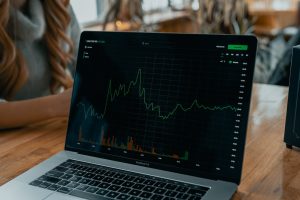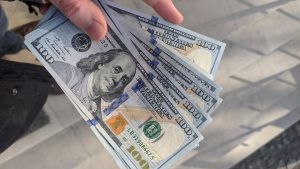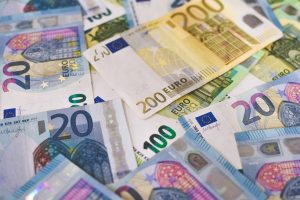Forex products in banks are financial instruments that allow individuals and businesses to trade in foreign currencies. Forex is short for foreign exchange, and it refers to the buying and selling of currencies on global markets. Banks offer a range of forex products to their customers, including spot trades, forward contracts, options, and currency swaps.
Spot trades are the simplest form of forex product. They involve the immediate exchange of one currency for another at the current market rate. For example, if a customer wants to buy euros with US dollars, the bank will quote them the current exchange rate and execute the trade at that price. Spot trades are settled within two business days, and the bank charges a commission or markup on the exchange rate.
Forward contracts are agreements between the bank and the customer to exchange currencies at a future date and at a predetermined exchange rate. This allows customers to lock in a favorable exchange rate, which can be useful for businesses that need to make international payments or receive foreign currency payments. Forward contracts can be customized to meet the customer’s specific needs, such as the amount and currency pair.
Options give customers the right, but not the obligation, to buy or sell a currency at a predetermined exchange rate on or before a specific date. This provides customers with flexibility and protection against adverse currency movements. For example, a business may buy an option to sell euros at a fixed exchange rate in case the euro depreciates against the US dollar. Options can be complex and require a good understanding of forex markets, so they are typically used by sophisticated investors.
Currency swaps are agreements between two parties to exchange currencies at a predetermined exchange rate and then reverse the transaction at a future date. This is useful for businesses that have ongoing foreign currency exposure, such as importers and exporters. By swapping currencies, they can effectively hedge against currency fluctuations and ensure a fixed exchange rate for their transactions.
Forex products in banks are usually offered by the bank’s treasury department, which is responsible for managing the bank’s foreign currency exposure and trading in forex markets. The treasury department employs forex traders who monitor global markets and execute trades on behalf of the bank and its customers.
Forex products can be used by individuals and businesses for a variety of purposes, such as:
– Making international payments: Forex products allow customers to buy and sell foreign currency for the purpose of making international payments. This is useful for businesses that import or export goods and services, as well as individuals who need to send money overseas.
– Investing in foreign currencies: Forex products can be used by investors who want to diversify their portfolios by investing in foreign currencies. This can provide exposure to different economies and currencies, which can be useful for managing risk.
– Hedging against currency risk: Forex products can be used by businesses to hedge against currency risk. For example, a business that exports goods to Europe may want to hedge against the risk of the euro depreciating against the US dollar, which would reduce the value of their exports.
In conclusion, forex products in banks are financial instruments that allow individuals and businesses to trade in foreign currencies. Banks offer a range of forex products, including spot trades, forward contracts, options, and currency swaps. Forex products can be used for a variety of purposes, such as making international payments, investing in foreign currencies, and hedging against currency risk. Understanding forex products and their risks is important for anyone who wants to trade in forex markets.





